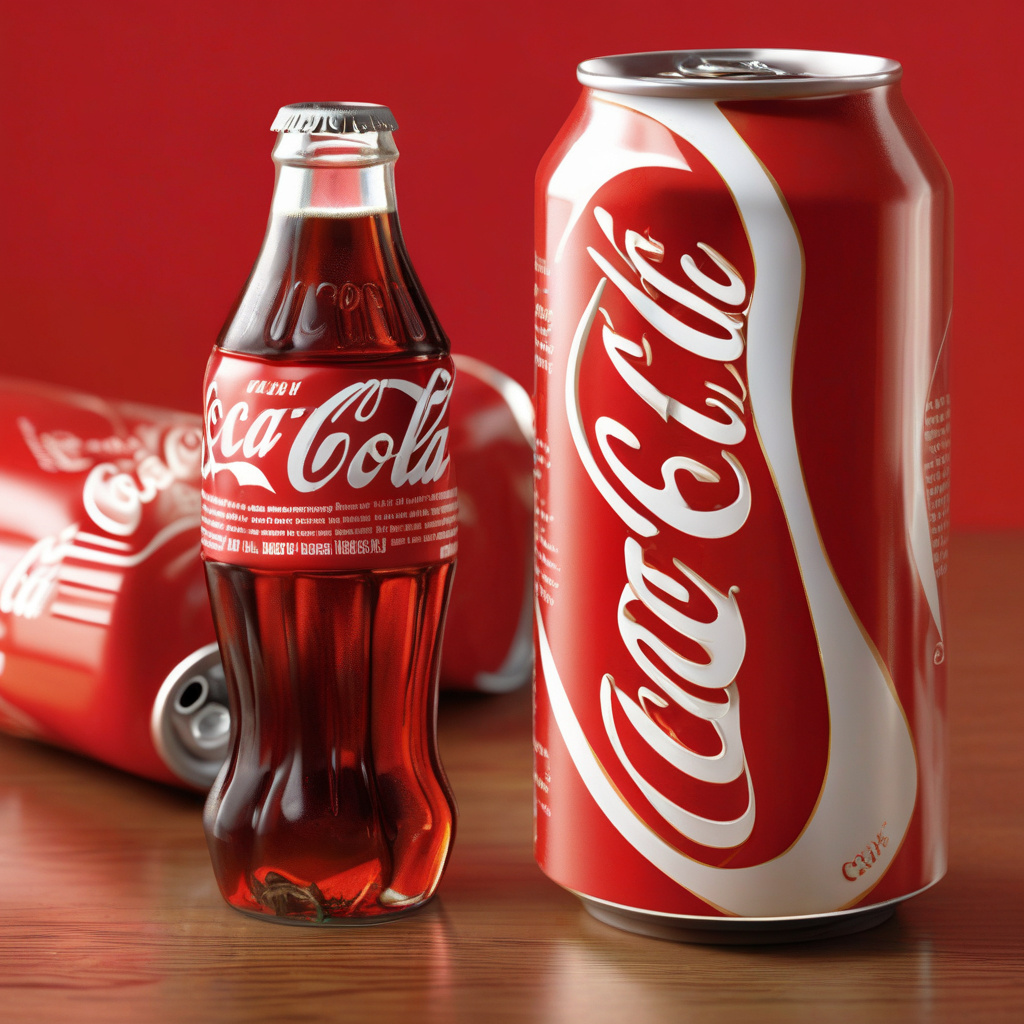Coca-Cola Tops Earnings and Revenue Estimates but Faces Soft Demand for Drinks
Coca-Cola Company, the global leader in the beverage industry, has recently reported impressive earnings and revenue figures that have exceeded market expectations. However, this success comes with a caveat: the demand for its drinks remains softer than anticipated. The juxtaposition of strong financial performance with waning consumer demand begs an examination of the company’s current position and future strategies in an increasingly competitive market.
In its latest earnings report, Coca-Cola announced earnings per share that surpassed analysts’ estimates, alongside a revenue growth that signals solid operational performance. This positive financial news is reflected in the stock market, where shares of Coca-Cola have surged nearly 10% this year, pushing its market value to approximately $295 billion. Such growth indicates that investor confidence in the brand remains high, even as market dynamics shift.
Despite these positive numbers, the company has cautioned investors that demand for its drinks is still soft. This remark is particularly striking considering Coca-Cola’s historical strength in maintaining strong brand loyalty and customer engagement. The company acknowledges the challenges posed by changing consumer preferences, particularly among younger generations who are increasingly health-conscious and favor non-carbonated options. This shift presents a significant hurdle for Coca-Cola, known primarily for its carbonated soft drinks.
To address these challenges, Coca-Cola has begun diversifying its product lineup. The company has invested heavily in expanding its portfolio to include healthier alternatives such as low-sugar and no-calorie beverages, flavored waters, and plant-based drinks. For instance, the launch of Coca-Cola Zero Sugar has been a strategic move to cater to health-conscious consumers while still retaining the taste that loyal customers expect. Such innovations are crucial as they not only help to capture a broader market but also reinforce Coca-Cola’s commitment to adaptability in a rapidly changing beverage landscape.
Coca-Cola has also focused on sustainability initiatives that resonate with today’s environmentally aware consumers. The company has made strides in reducing its carbon footprint and improving packaging sustainability, including a commitment to make all of its packaging recyclable by 2025. This approach not only helps Coca-Cola meet regulatory requirements but also aligns the brand with the values of consumers who prioritize environmental responsibility.
However, the challenges do not end with product offerings and sustainability. The economic landscape itself poses threats to Coca-Cola’s business model. Rising inflation rates and supply chain disruptions have affected many industries, including beverages. As costs for raw materials and transportation continue to rise, Coca-Cola faces pressure to manage expenses while keeping prices competitive for consumers. The company has hinted at possible price increases to offset these costs, a strategy that could further impact demand.
Moreover, the competitive environment in the beverage sector continues to intensify. Coca-Cola faces formidable competition from both traditional rivals, such as PepsiCo, and emerging brands that cater to niche markets. The rise of craft beverages, functional drinks, and healthier alternatives is reshaping consumer expectations, and Coca-Cola must navigate this landscape with agility and foresight.
Looking ahead, Coca-Cola’s management has emphasized the importance of strategic investments in brand marketing and consumer engagement. As part of its growth strategy, Coca-Cola is likely to focus on strengthening its brand presence through targeted advertising campaigns and partnerships that resonate with younger consumers. By leveraging digital marketing platforms and social media, Coca-Cola can foster a deeper connection with its audience, ultimately driving demand.
In conclusion, while Coca-Cola has reported strong earnings and a significant rise in its market value, the company must remain vigilant in addressing the soft demand for its products. With a diversified product portfolio, a focus on sustainability, and an adaptive marketing strategy, Coca-Cola is poised to navigate the challenges ahead. The beverage giant’s ability to balance financial success with evolving consumer preferences will be crucial in maintaining its leadership position in the market.
Coca-Cola stands at a crossroads—where its historic brand strength meets the realities of a changing market. The company’s future will depend on its capacity to innovate while staying true to its brand legacy, ensuring that it not only meets but exceeds consumer expectations in the years to come.
CocaCola, BeverageIndustry, BusinessStrategy, MarketTrends, ConsumerDemand
